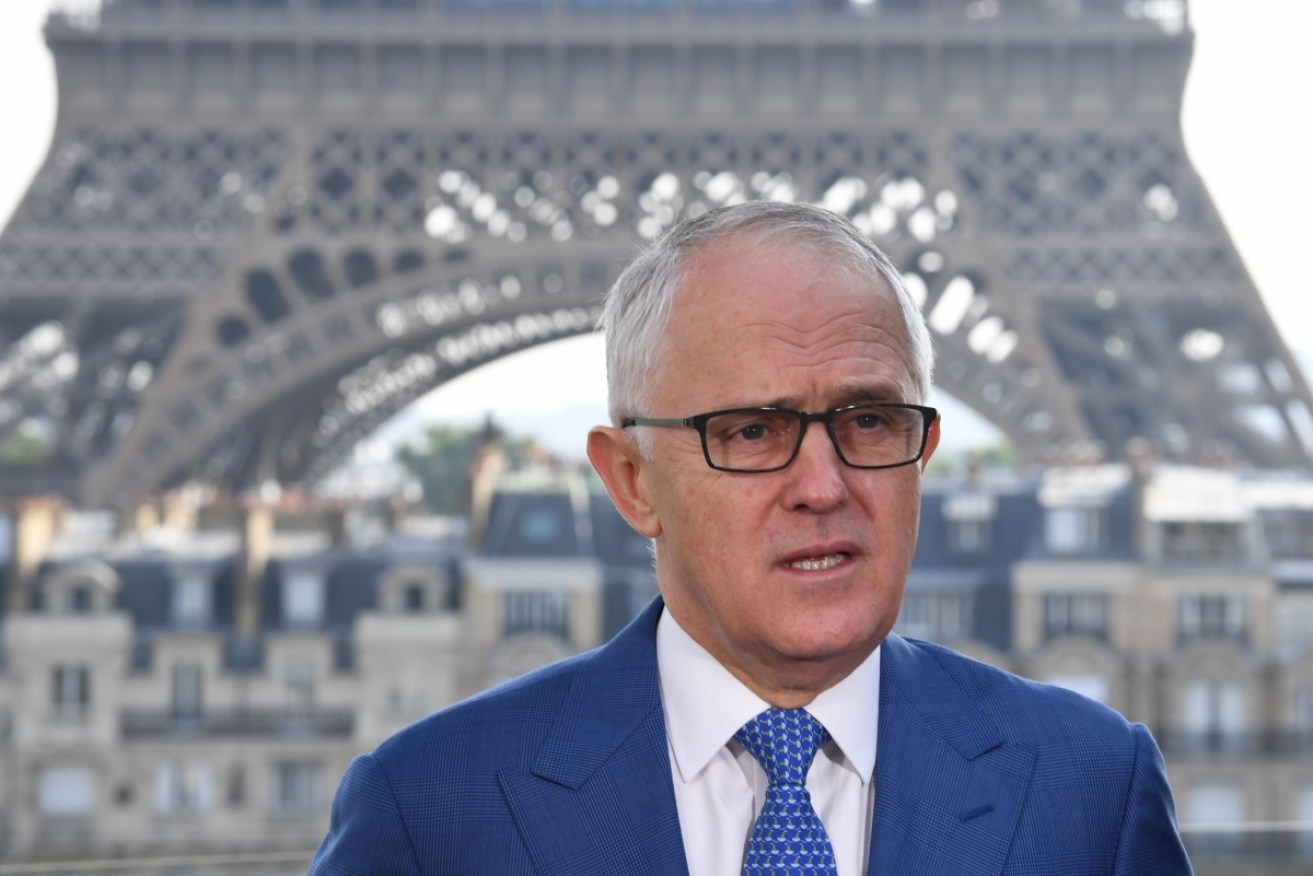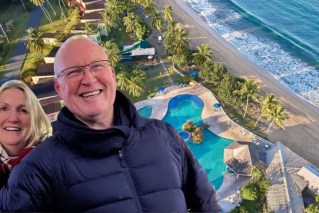The major security threat missing from world leaders’ G20 talks


Prime Minister Malcolm Turnbull avoided questions in Paris about the absence of North Korea discussions at the G20. Photo: AAP
While Prime Minister Malcolm Turnbull has branded the G20 summit a success, he has been forced to deflect questions on why it did not address North Korea’s “shocking escalation”.
In fact, missing from the final G20 communique was any statement on the rogue dictatorship – which test-fired its deadliest weapon only days before.
On Sunday, Mr Turnbull appeared to brush off questions over the lack of focus on North Korea at the Hamburg meetings, passing the buck to China to take the initiative.
“Nobody at that round table was defending the North Koreans in terms of their conduct,” he told reporters in Paris.
“The Chinese have the greatest leverage and therefore the greatest responsibility.”
Earlier in the summit, Mr Turnbull engaged in talks with Chinese president Xi Jinping. He reported back to Australian journalists that the Chinese felt their influence over North Korea was “not as great as others assert”.
However, The Australian newspaper has represented Mr Turnbull’s discussion with President Xi as more blunt, reporting that the Prime Minister told China it was the key to avoiding military conflict and that it must act to prevent it.
Officials reportedly said Mr Turnbull had been “frank and forthright”.
“My message … is exactly the same message that I make publicly and that is China has the ability to bring North Korea to its senses in a way that nobody else can, absent military force, and they should take that responsibility and act,” Mr Turnbull said, according to the paper.
TV cameras at the summit also recorded Mr Turnbull reassuring South Korean president Moon Jae-in of Australia’s commitment to restoring “peace and stability” to the Korean peninsula.
Mr Turnbull was also overhead to say: “How do you see the shocking escalation by North Korea, manifested most recently in the latest test; how do you see the best means of dealing with this, to stop this reckless conduct which threatens the peace of our region?”
The South Korean president’s answer was not heard.

Australia has boycotted UN talks on a new treaty to ban nuclear weapons. Photo: AAP
The absence of any official G20 statement on North Korea struck many experts as odd given that the summit was held days after Pyongyang fired its first successful intercontinental ballistic missile, possibly capable of striking as far away as Australia or the US state of Alaska.
While almost 130 nations reacted by gathering at the United Nations in New York last week in a significant move towards banning nuclear weapon, Australia opted out.
Meanwhile, China and Russia effectively vetoed any criticism of the rogue state’s missile tests, arguing the G20 should be kept a primarily economic forum.
In a G20 analysis by ABC’s Chris Uhlmann’s, which has since gone viral, the senior political editor blamed US President Donald Trump for not pushing the issue of North Korea to the forefront of discussions.
“A deft president would have found an issue which he could rally most of the leaders. And he had the perfect one – North Korea’s missile tests,” he said in an ABC report.
“So where was the G20 statement condemning North Korea which would have put pressure on China and Russia? Other leaders expected it. They were prepared to back it, but it never came.”
While the G20 may not have yielded action on North Korea, the joint air forces of the US, South Korea and Japan conducted practice bombing raids over South Korea in order to send a message to the North Korean regime.
A united fight against terrorism
Mr Turnbull’s key contribution to the final G20 communique was convincing leaders to back a statement on extending the rule of law to terrorism on the internet.
“Chancellor Dr Angela Merkel and I are united in countering terrorism and radicalisation, and agreed to intensify cooperation to tackle this scourge, including through collaboration with industry,” he said in a statement.
“Australia and Germany are committed to defeating Islamic State, including through coalition efforts in Iraq. We agreed to work together to address cyber threats and to balance protection of communications with public safety.”
More domestic affairs interrupted the Prime Minister’s trip abroad on Sunday, with news from Australia that the latest Newspoll, following weeks of destabilisation from internal party rival Tony Abbott, showed Turnbull fall in the ‘better PM’ stakes to 41 (-3) and Labor leader Bill Shorten improve to 33 (+2).
During the world leaders’ visit to Hamburg, a series of violent protests left 200 police officers injured, 134 people temporarily detained and another 100 taken into custody.
Next year’s summit will be hosted by Argentina, followed by Japan and Saudi Arabia.







